Intro
Europe has diverse cultures and histories. It has been a global beacon of democracy. The region has made significant contributions to the international democratic discourse. It has created a model that has influenced nations worldwide.
Yet, like all political systems, it faces challenges and opportunities. This article delves into the landscape of democracy in Europe. It provides a comprehensive analysis of its history, model, and the role of the European Union. It also covers its challenges, case studies, impact on European identity, and future prospects.
History of Democracy in Europe

The seeds of democracy were sown in the rich soil of Europe. Specifically in the vibrant city-state of Athens during the 5th century BC. An extraordinary period in history. People began to challenge the notion of rule by divine right. Instead, they envisioned a system where power rested in the hands of the citizens. A radical concept at the time, democracy began to take shape with its roots in the Greek words’ demos’ (people) and ‘kratos’ (rule).
Fast forward to the 18th century. The Age of Enlightenment set the stage for a broader acceptance of European democratic ideals. Minds opened, and pens sharpened. The philosophies of Voltaire, Rousseau, and Montesquieu began questioning authoritarian rule. They advocated for freedom, equality, and justice. The flames of revolution were fanned. This resulted in the pivotal French and American revolutions. These further cemented democracy’s place in the political landscape.
The 20th century, however, would test the mettle of democracy in unimaginable ways. Europe’s political landscape underwent significant transformations. Two World Wars and the ideological warfare of the Cold War marked it with horrific devastation. Monarchies crumbled, and dictatorships fell. Out of the ashes, democracy rose like a phoenix. It solidified its place as the preferred form of governance in the region.
Europe’s tryst with democracy has been a thrilling journey. Triumphs, trials, enlightenments, revolutions, wars, and reconciliations have peppered it. The trip started with Athens’ assembly debates and continued with modern-day parliamentary procedures. A journey that continues to evolve, shaping the very core of the continent. The story of democracy in Europe is not just a historical narrative. It’s a testament to the enduring power of the people’s voice.
The European Model of Democracy

The heartbeat of democracy in Europe pulses with a profound commitment to human rights. It also values the rule of law and has a deep-rooted sense of political pluralism. The region leans towards a parliamentary form of government. A rich tapestry of parties represents the spectrum of political ideologies. The magic of European democracy can be felt in its representative system. Even the most minor political parties find their voice amplified in the legislature. This is thanks to a preference for proportional representation in elections.
But the beauty of European democracy goes beyond the ballot box. It is intertwined with a profound social conscience. This forms the backbone of the continent’s welfare state. This highlights the region’s dedication to social justice and economic fairness. Here, the prosperity of the many takes precedence over the wealth of the few.
Yes, Europe’s democratic model is distinctive, diverse, and dynamic. It’s like a grand symphony harmonizing many political voices into a unified tune. It’s a fascinating canvas. The colors of human rights, rule of law, and political pluralism blend to form a masterpiece of governance. It’s a story that is still being written. Each chapter echoes Europe’s undying commitment to democracy.
The Role of European Union in Advancing Democracy

In Europe, democratic ideals form a labyrinth. One encounters the colossal edifice of the European Union (EU). Its role? Nothing less than the championing and safeguarding of democracy in this diverse region. At the heart of the EU’s mission is a robust democratic clause, a figurative gatekeeper. Aspiring member countries must show adherence to democratic principles to cross this gate. This clearly shows the EU’s dedication to upholding democratic integrity.
But the EU continues beyond prerequisites. Picture it as a guardian, nurturing democracy. It does so through a variety of initiatives and large funding programs. The aim is unambiguous. It aims to strengthen democratic institutions and invigorate civil society within its member states. It also seeks to consolidate the rule of law within its member states.
Imagine the EU as a watchful gardener. It nurtures the seeds of democracy planted in European soil. The EU waters them with robust policies and initiatives. This vigilance ensures the saplings of democratic institutions grow tall and sturdy. They can withstand the storms of political change and social upheaval.
The EU’s role is a testament to Europe’s enduring strength and commitment to democracy. It acts as the binding glue, uniting its members under democratic principles and ideals. It’s not just about maintaining the status quo but about pushing forward, elevating democracy’s standing in the continent to new heights.
The European Union is a bulwark for democracy in Europe. It is steadfast in its mission to nurture, protect, and advance the democratic cause. The EU is the torchbearer of Europe’s democratic journey. It will continue to play an instrumental role in shaping the region’s democratic future. The EU’s role in advancing democracy is complex, challenging, and essential to the future of Europe, much like the Union itself.
The Challenges to Democracy in Europe

No rose, they say, is without its thorns – and this holds true even for the blossoming flower of democracy in Europe. It thrives in fertile ground. This ground is history, tradition, and democratic principles. Yet, it has to contend with many challenges threatening its robust growth.
The recent emergence and surge of populist and nationalist parties have been a considerable challenge. Often fueled by public disillusionment with political elites, these parties advocate for radical changes that could destabilize the democratic equilibrium. Their growing influence could be a proverbial acid test for European democracies.
Another pressing issue is the age-old concern over immigration and national identity. As Europe becomes multicultural, some citizens grapple with the fear of losing their national identities. This fear often leads to reactionary politics. This can challenge the pluralistic ideals at the heart of European democracies.
Then, there’s the technological revolution. It has enhanced democratic processes by facilitating information dissemination and citizen participation. But it has also opened Pandora’s box. Misinformation, propaganda, and cyber threats are dark clouds looming over the digital democracy landscape.
And let’s remember the economic inequalities that persist. Europe prides itself on its welfare state and commitment to economic fairness. Yet, disparities in wealth distribution remain. The challenge is to ensure that economic prosperity isn’t just for a few but a shared reality for all.
Navigating these challenges will require wisdom, resilience, and an unwavering commitment to democratic principles. The future of democracy in Europe may seem daunting. But, if history is any guide, this is just another chapter in its thrilling journey. At its core, democracy is the rule of the people. It’s up to the people of Europe to guide it through these challenging times.
Case Studies: Democracy in Selected European Countries

When you peek into the intricate tapestry of democracy in Europe, you’ll find fascinating patterns. The patterns vary from country to country. The dynamic Scandinavian nations, for instance, dazzle with their exceptional levels of citizen engagement. They have formidable welfare states, providing a template for participative democracy. Journey further south, and you’ll encounter Germany. It’s the phoenix that rose from the ashes of war. Its commitment to democratic reconciliation and a robust parliamentary system speaks volumes about its evolution and determination.
But not all stories gleam with positivity. Countries like Hungary and Poland loom on the horizon. Shadows of democratic regression seem to be creeping in. Rising concerns about media freedom and the independence of the judiciary in these nations serve as a sobering reminder. The fight for democracy is far from over.
These case studies highlight the intricate diversity of European democracies. Each has its unique narrative. They are threaded together by the standard strand of democratic commitment. This creates a captivating mosaic of governance, trials, triumphs, and ongoing evolution. Europe’s political landscape is enriching and intriguing. This is because of its broad spectrum of democratic experiences. Indeed, understanding democracy in Europe isn’t just about looking at the whole picture but also appreciating the individual pieces that make it complete.
Democracy and European Identity

The European Identity as a Colorful Tapestry of Diversity United by Shared Values
Envision a vast and vibrant tapestry. It’s rich with diverse patterns yet intertwined by a single thread. This is the visual metaphor for the unique interplay between democracy and the European identity. Democracy in Europe is not just a political idea. It is also a part of the cultural fabric that defines the continent. This European identity is a colorful collage of diverse cultures, traditions, and histories. It is unified by the shared thread of democratic values. These values – human rights, freedom, equality, and tolerance – form the warp and weft of this cultural tapestry.
This tapestry features the emblematic motto of the European Union. The motto is “United in Diversity.”” This motto resonates deeply. It portrays a region where cultural diversity is celebrated. The shared commitment to democratic principles fortifies unity. It underpins a narrative of cohesion and cooperation. Despite their differences, nations come together to uphold and advance the democratic cause.
Democracy’s Enduring Thread in the Ongoing Evolution of the European Identity
Yet, like any living entity, the European identity is not static. It is a fluid, evolving concept. Political, social, and economic currents shape and reshape it. The currents sweep across the continent. As Europe transforms, this identity will face new challenges and opportunities. Yet, the thread of democracy will remain constant. It weaves through this tapestry. It is a testament to Europe’s enduring commitment to democratic ideals.
Delving into the European identity is like embarking on a fascinating journey. It navigates the intricate labyrinth of history, culture, and politics. At every turn, the influence of democracy is palpable. It seeps into the narrative. It leaves an indelible imprint on the continent’s collective consciousness. Today, the European identity is linked to the region’s democratic spirit. In essence, this is true. It’s an intriguing story, a unique interplay, and an ongoing evolution. A dance between democracy and identity is playing out on the grand stage of Europe.
The Future of Democracy in Europe

As we step forward into an uncertain future, the trajectory of European democracy is a compelling narrative. Questions cloud the horizon. We grapple with the rise of populism. We also face skepticism about the European Union. Plus, there are ominous whispers of democratic regression. But let’s not forget that European democracy has a rich history. It has been a relentless phoenix, rising stronger from the ashes of its challenges.
The road ahead is by no means an easy one. It is dotted with obstacles that must be faced with determination and conviction. The challenge is to build bridges across political divisions. We must ensure that the press remains free and vibrant. We must also maintain a determined stand against economic disparities. European democracies must also safeguard their multicultural identities. They should champion inclusivity and nurture a shared sense of belonging.
But the heart of European democracy is resilient. The fires of history have hardened it, and centuries of evolution have tempered it. This resilience is its greatest strength. It is a beacon of hope that shines through the fog of uncertainty. It guides the region towards a future where democracy doesn’t just survive but thrives.
Yes, the future of European democracy may be a topic of debate, a question mark etched against the sky. But remember, it’s in the hands of its people. Their voice, choice, resilience, and commitment to democratic ideals will write the next chapter of the European democratic story. If history is any guide, it promises to be another thrilling journey. It echoes with the undying spirit of Europe.



